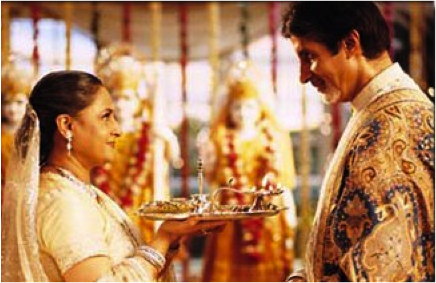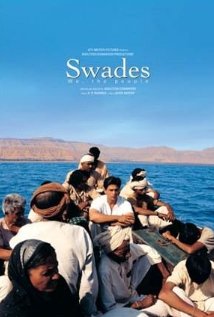
The Initiative for Interdisciplinary Media Research and Jatin Wagle (in conjunction with his seminar “Long-Distance Hindu Nationalism and the Changing Figure of the Expatriate Indian in Contemporary Bollywood Cinema”) are proud to present a series of screenings this winter semester:
Bollywood Nation
From the first silent feature made in 1913, one of the many appeals of commercial Hindi cinema has been its persistent and multifarious staging of the Indian nationalism. It has been argued that the Bombay film constitutes a significant site for the popular negotiation of the Indian nation and that its history could even be told as an eccentric allegory of the checkered, postcolonial career of the Indian nation-state. In the 1960s and 1970s, for instance, when the “brain drain” paradigm ruled the official and dominant view of emigration in India, in the Hindi films the emigrant was portrayed as a sort of deficient Indian. His Indianness corrupted by Western decadence, he was someone who needed to be reformed, if not reviled. But, all this changed after the processes of economic liberalization were set in motion in 1991 and the Indian state started wooing the non-resident Indian (NRI). The new Bollywood NRI is not just an exemplary Indian, but even excessively so. In other words, he is more Indian than Indian, because he is both ultramodern and hypertraditional; he has a hugely successful career in the West, but his home is still an improbable oasis of Indian values and religiosity. Thus, the new Bollywood NRI embodies a deterritorialized cultural nationalism which utilizes the rhetoric of India’s alleged emergence as a global superpower. But, with the unprecedented global recognition and popularity of Bollywood, the rise of the new NRI has also been accompanied by an upsurge of Hindu nationalism within India and in the Indian diaspora. Does the changed socio-economic context and cinematic form account for Bollywood’s growing global appeal?
We plan to engage with these and other related issues in our series “Bollywood Nation” with five films to be screened between 27.10.2011 and 26.01.2012 at 18:00 in room no. 615.
27.10.2011 – Swades: We, the People [Homeland] (Dir. Ashutosh Gowariker, 2004, 187 mins.): A late renegotiation of the “brain drain” paradigm and could serve as a contrast to the new global NRI films. (more here)
24.11.2011 – Dilwale Dulhania Le Jayenge [The Big Hearted Will Take the Bride] (Dir. Aditya Chopra, 1995, 192 mins.): First successful new global NRI film, considered a classic of its kind. (more here)
08.12.2011 – Pardes [Foreign Land] (Dir. Subhash Ghai, 1997, 195 mins.): Another commercial success, both in India and abroad.
05.01.2012 – Mr. and Mrs. Iyer (Dir. Aparna Sen, 2002, 120 mins.): An English language, Indian film and not a Bollywood production; offers a contrasting aesthetic and another kind of negotiation with the composite idea of the Indian nation.
26.01.2012 – Kabhi Khushi Kabhie Gham… [Sometimes Happiness, Sometimes Sadness] (Dir. Karan Johar 2001, 210 mins.): One of the biggest commercial hits outside of India and the first Bollywood film to be released simultaneously in Germany, under the title In guten wie in schweren Tagen.



